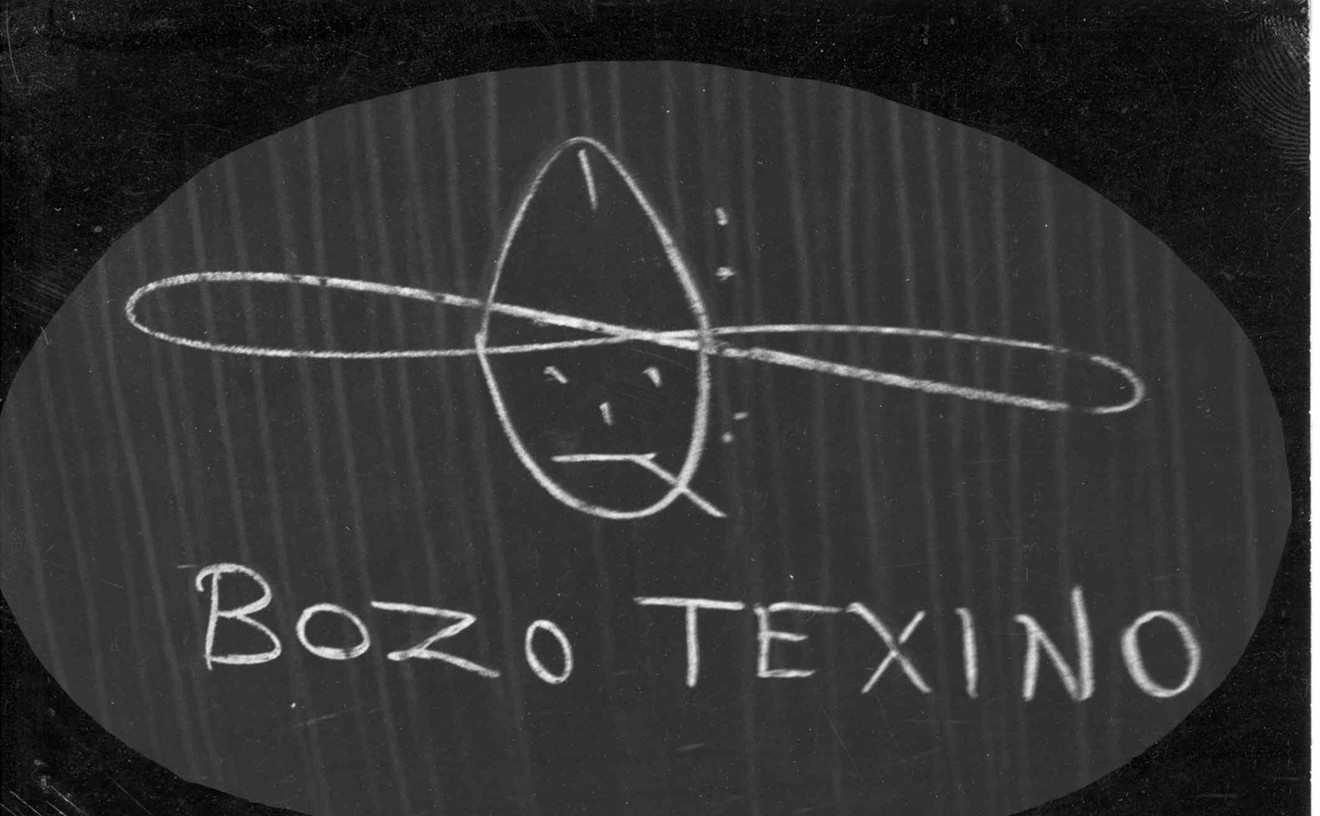See also: - Alamo Drafthouse partners with International Film Series - The Dairy Center's Boedecker Theater is comfy and it sounds all right, too! - The five best scenes from Repo Man, an Alex Cox cult classic
"I waited to the last minute," he admits. "Well, this is the last minute. If we don't have proper digital equipment in place by this summer, we're toast." Yet he also wants to identify what this would mean for IFS. "I want to keep our reel-to-reel archives and private collections," he says. "We would be adding digital to the setup in both of our booths, we will not be changing to digital. If you want to honor the past, you should show the film the way it was filmed in the past. If you don't, it's like a museum going to a poster replica of a painting, instead of showing the actual painting."
But the argument becomes moot with movies that are originally shot digitally. Another advantage of choosing to buy digital projection equipment now? The technology is changing and becoming more portable and affordable with time, meaning that when Kjolseth goes shopping, he'll get more bang for less buck. "I'm excited to be able to stay current," he adds. "Going digital means that I might eventually be able add 3D to the bells and whistles available at IFS. More independent films are being made using 3D technology -- such as Cave of Forgotten Dreams and Pina. I'm sorry not to have been able to show Pina in 3D."
For now, IFS is looking for donations (an attempt at crowd-sourcing might also be in the nonprofit's future, Kjolseth notes); read Kjolseth's plea below.
I've been programming the IFS for over 15 years. Having grown up in Boulder I can even boast to attending IFS screenings since I was in grade school. I've seen it go through many changes, and I've seen it survive many challenges. This newest and latest challenge is not insurmountable, but it is probably the most daunting one yet. I won't bury the lead: the IFS is a scrappy little program that has always done very much with very little. It runs on fumes and is worked by a skeleton crew. Most of our operating budget comes from ticket sales, and we usually manage to make it to the end of every fiscal year with anywhere from $97 to $7,000 in the till. Those numbers are not typos and a far cry from the multi-million dollar budgets afforded other film programs across the nation. Now, after over 100 years of operating with analog equipment, the "film" business is dumping celluloid and now in the business of projecting digital files. These require a Digital Cinema Package (D.C.P.) system, which costs $80,000.The CineMark theater here in Boulder is all digital. The Boedecker is all digital. The BIFF is almost all digital. And so it goes. Here at the IFS we plan on keeping our 35mm projectors so that we can continue to show rare prints, archive films, and titles from private collections. But that will only go so far, and if we are to continue serving the Boulder community we will need to come up with the funds for the D.C.P. system, as well as installation, and its upkeep.
Any donation will help, is tax deductible, and can be made by clicking on the button below. The IFS has been around for over 71 years and has always been there to provide a low-cost, high-quality, nonprofit film program that balances newer titles with classics and rarities - and has also brought in a long list of special guests too numerous to mention here, but easily accessible via the timeline on the home-page. The IFS has nurtured many minds and souls over its long years, and now needs a bit of nurture itself. I hope anyone who reads this will agree, and join me in making a contribution to keep it alive. There are still so many wonderful and great films and filmmakers that we'd like to bring!
IFS opens tonight with a free screening of the documentary No Crossover: The Trial of Allen Iverson, with director Steve James in person at 7 p.m. in Muenzinger Auditorium, CU-Boulder campus. Visit the IFS website for a full schedule and more information.
To keep up with the Froyd's eye-view of arts and culture in Denver, "like" my fan page on Facebook.
Follow @WestwordCulture











